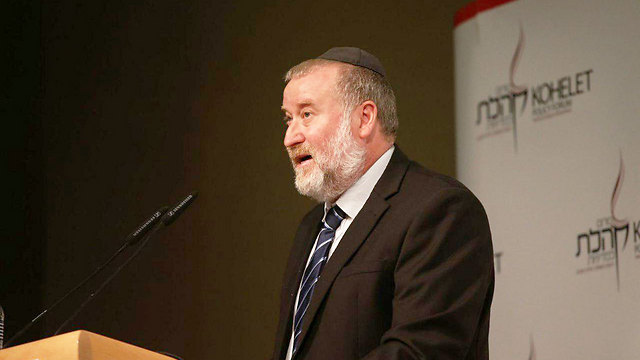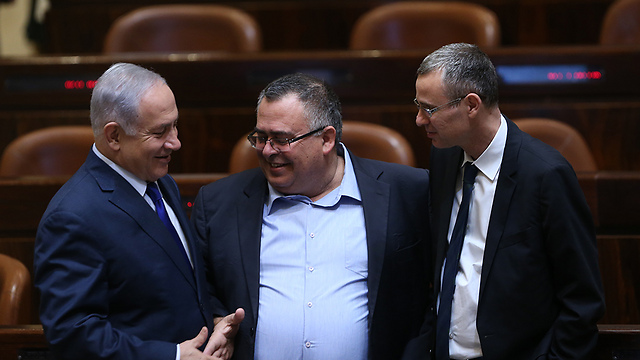

AG may strongly rebuke anti-police recommendations bill
Mandelblit to review bill prohibiting police from presenting indictment recommendations, despite the fact police currently only states whether it has found sufficient evidence to justify indictment; Police Commissioner Alsheikh also objects to bill, saying, 'You cannot end an investigation without offering a summation of it.'
Attorney General Avichai Mandelblit is set to review a stronger worded version of a bill that would prohibit the police from presenting a recommendation to indict. This despite the fact that the police does not, actually, recommend indictment, but rather states whether it has found sufficient evidence to justify an indictment.
Last week, Mandelblit said that although he does not "like" the proposed bill, there is no judicial reason to block it. The new version, though, would also have the law apply to current police investigations against Prime Minister Benjamin Netanyahu. These include the illicit gifts investigation, his alleged attempts to sway his media coverage through talks with Yedioth Ahronoth owner Noni Mozes, Netanyahu's alleged push for the Israeli Navy to purchase several German submarines and suspected forgery of meal expenses submitted by the prime minister and his wife, Sara.
In light of this change to the bill, Mandelblit is planning on convening another meeting with the Ministerial Legislation Committee next Sunday, to discuss the bill further. It is estimated that Mandelblit will strongly object to the bill. After already objecting, together with State Prosecutor Shai Nitzan, to another bill nicknamed "the French bill," which emulates a similar law that protects a sitting French president from being indicted.
Judicial experts estimated that Mandelblit's vehement objection stems from the fact that Israeli law does not normally include personal or retroactive legislation.
Police Commissioner Roni Alsheikh also voiced his objection to the bill on Tuesday. "I don't know what this new law is. When I will, I'll respond to it. But let me just say that you cannot end an investigation without offering a summation of it. This (bill—ed.) would mean that the Attorney General's Office would have to run the investigation. Do you think the Attorney General's Office can run investigations at its current capacity? This is why you cannot avoid showing some sort of 'product,' with the product in this case being a statement that 'these are the conclusion we've reached.'"
The bill hindering the police from offering its recommendations is set to be discussed by the Ministerial Legislation Committee after a tumultuous two weeks, during which no coalition bills have been discussed by it. The legislative lockdown was the work of Coalition Chairperson David Bitan: after coalition members Kulanu and Bayit Yehudi refused to discuss the bill, Bitan said that if the French bill would not be discussed, no other coalition bills would, either. The committee then agreed to postpone discussing the French bill by one month.
The problem Bitan is now looking to tackle seemingly revolves around a critical technicality: namely, changing the bill from an amendment to a Basic Law to a regular bill. If Bitan were to succeed in doing so, he would theoretically be able to force all the coalition members to vote for it under existing coalition discipline agreements.
However, after opposition MK Yoel Hasson asked the Knesset's legal advisor Eyal Yinon on Tuesday to examine the legal ramifications of such a move, Yinon responded by saying that "the amendment of a Basic Law should be made within the confines of a Basic law."
In essence, this blocks Bitan from submitting it as a regular bill. Yinon's response cited the existing Basic Law: The Government, which states that "a criminal investigation against the prime minister cannot be launched without the approval of the attorney general." This means that the prime minister can be investigated for any offense, with the sole condition being the authorization of the attorney general.
Consequently, any legislation that seeks to impose additional restrictions on an ongoing investigation of the prime minister constitutes a change of the existing constitutional arrangement. Therefore, according to Yinon, it would require an amendment of the Basic Law.
Arnon Mozes is the publisher and owner of Yedioth Ahronoth Group, which includes Ynet.


















